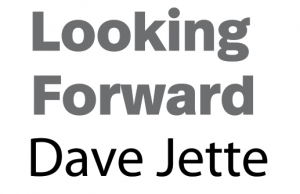In the last column, I reviewed the movie Imperium based on the experiences of undercover FBI agent Mike German who infiltrated white supremacist organizations, as related in his book Thinking Like a Terrorist published in 2008. Here we shall see how the author approaches the problem of terrorism, in contradiction to the way that terrorism had been handled and how in fact it still is being handled today.
German explains that terrorists are not mental misfits but rather are following a rational strategy which we don’t understand, and he gives ways of dealing effectively

with terrorist groups depending on the legitimacy of their cause.
German defines terrorist attacks as being “acts of war against unprotected citizenry.” “Terrorism victimizes an entire nation, an entire population, an entire culture. It is a crime against humanity.” However, we in the US are unable to see our own acts as terroristic. “The enemy engages in terrorism; we engage only in counterterrorism.”
“But the groups we consider terrorists don’t regard themselves as terrorists either. … They defend their actions as morally justifiable, necessary responses to oppression. Terrorists firmly believe they are the persecuted victims of an evil injustice, and [that] they have the right to resist their oppression by any means necessary. This confidence in the righteousness of their cause is what drives terrorist groups to write their manifestos and publish their declarations of war.”
For terrorists, terrorism is all about the message.
We’re clear that terrorism constitutes heinous attacks on uninvolved civilians (rather than, for example, direct attacks on an occupying army). However, such attacks are carried out by rational human beings, just like us. Terrorists are not mentally ill, nor are they people who (to quote a theory propounded by a foremost proponent of the idea that terrorists are primarily driven by psychological factors) have a particular psychological mind-set called “terrorist psycho-logic” that compels them to engage in terrorism.
This expert believes that “a great deal has gone wrong in the lives of people who are drawn to terrorism,” describing terrorists as “outcasts … from the margins of society”, with “personal feelings of inadequacy,” who join terrorist groups simply “to belong,” to feel “that what they did mattered,” and to “heal their inner wounds by attacking the outside enemy.”
Gross misunderstandings such as this prevent us from dealing with terrorism in a rational, effective way. Indeed, we do not even understand the strategy of terrorist groups, which is to wage a war of attrition, damaging the economic infrastructure and costing the government to spend huge amounts of money on maintaining security. They increasingly demonstrate the ineffectiveness and barbarism of the government they are attacking and claim the mantle of legitimacy for their own cause in the eyes of more and more people.
Terrorists are quite aware of the fact that they are weak and the government is strong. Their strategy is to divide the populace into two components: “us” and “them.” Governments fall into the trap of furthering this division by waging an indiscriminate “war on terrorism” which flouts its own proclaimed rule of law.
Accordingly, German distinguishes between “legitimately motivated terrorists” (such as the Irish Republican Army which fought against the British occupation of Northern Ireland) and “extremist terrorists” such as the Ku Klux Klan. The terrorist group wages its struggle on behalf of an “identity group” that may or may not actually be oppressed: the Catholics in Northern Ireland in the case of the Irish Republican Army, and all white people in the case of the Ku Klux Klan.
However, being “legitimately motivated” doesn’t mean that the terrorist group legitimately represents its identity group or that using violence to redress its grievance is legitimate. “While these groups may claim a legitimate motive, if to achieve those ends they choose illegitimate means – extortion, violence, and other organized criminal activity – they are still terrorists.”
But recognition by the government of the legitimate grievance does open the road to a negotiated political solution to the insurgency. Nonetheless, the government must strictly maintain control of security, while not using this as a substitute for addressing legitimate grievances.
Regarding “extremist terrorists,” the government must maintain its legitimacy by adhering strictly to the rule of law, thereby thwarting the terrorists’ strategy of obtaining an aura of legitimacy for themselves.
Trying captured terrorists in open court with full rights for the defense and incontrovertible prosecuting evidence makes clear the government’s legitimacy. This of course was not true of the FBI’s five COINTELPRO programs, targeting the Communist Party (initiated in 1956), the Socialist Workers Party (1961), White Hate (1964), Black Nationalists (1967), and the New Left (1968).
Because of the FBI’s often immoral and sometimes illegal activities, most evidence gathered during COINTELPRO was ultimately worthless to a criminal prosecution and for mobilizing public approbation. The result was that COINTELPRO techniques were ineffective as well as being harmful to the rule of law—not the right way to deal with terrorism!
Dave Jette writes this bi-monthly column and has been involved with Works in Progress since its beginnings. His three books are available at www.lulu.com: A Reformulation of Dialectical Materialism, which incorporates feminist theory into a traditional Marxist framework; Beyond Classical Marxism, about socialism and how to bring it about in the US; and Looking Forward, mainly offering the columns that appear here over time.
Be First to Comment